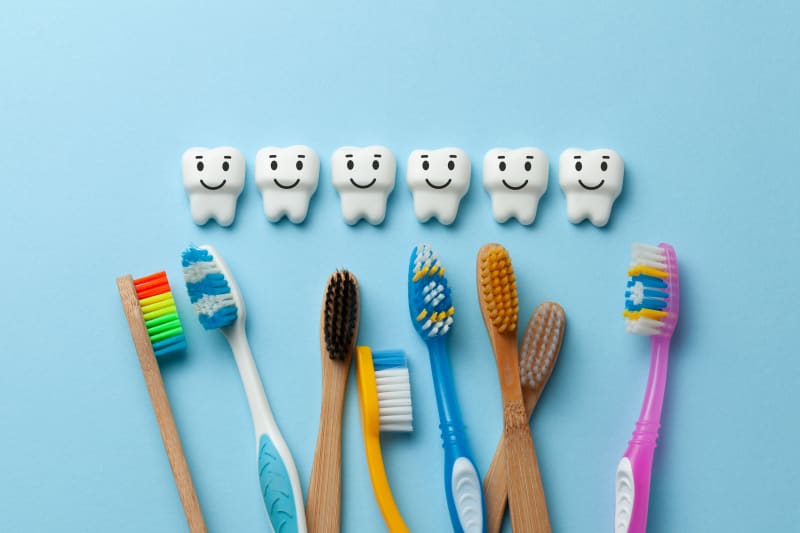
Here, we explain the ins and outs of family dentistry and how dentists can help kids, teens, adults and seniors keep their smiles healthy.
How do dental services change as I get older?
Kids
Routine dental care is critical for children to help them set a solid foundation for lifelong health.
Starting with a child's first visit to the dentist at around 6-months-old, dentists work hard to keep their smile healthy. This care includes routine cleanings and exams, as well as education about at-home oral hygiene techniques to make sure kids know how to take care for their smiles.
Ford children with higher-than-normal risk for tooth decay, restorative dental services and custom treatment plans are available as well.
Teens
As teens grow, their dental care will need to grow with them. Preventive dental care will continue as they visit their dentist every 9 months or so.
Since teens are often concerned about their appearance and having a healthy, white smile at this age, a dentist will provide education about the benefits to the look of their smiles afforded by oral hygiene.
If orthodontic care is needed, teens will be referred to an orthodontist for assessment and perhaps require treatment with braces, clear aligners, a retainer or other appliances.
Adults
In adulthood, many people develop early stages of gum disease, possibly causing in oral health issues like painfully swollen gums. Preventive care should be top of mind for adults, including at-home care and routine visits to the dentist for cleanings.
Many people also need their wisdom teeth removed in early adulthood. Sometimes specialized care is required like oral surgery for issues like TMJ disorder or sleep apnea.
If restorative services such as crowns, bridges or fillings are required, we are happy to offer these and address any questions and concerns you may have.
Seniors
As you age, your mouth and teeth will naturally change and you may have new medical needs. This may increase your risk for developing dental health issues, including:
- Oral cancer
- Dry mouth (caused by medications)
- Tooth decay or cavities
- Gum disease or periodontitis
- Need for tooth replacements or dentures
You might notice that your teeth grow less sensitive to pain from cavities or hot or cold temperatures. This is because the nerves in your teeth shrink as you age. If gum tissue recedes, however, your teeth may become more sensitive as your roots become more exposed.
Wear and plaque on your teeth may also cause other issues. A dentist can examine your smile and help to address these issues by recommending appropriate treatment like restorative services or dental implants.
Are you curious about how dental care changes as your move through life-stages?
A dentist will be happy to answer any questions and give you answers to all of your questions.



